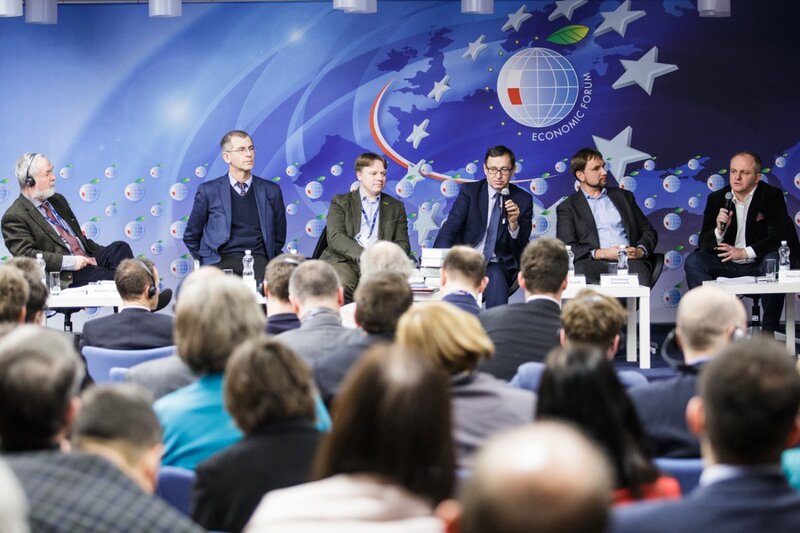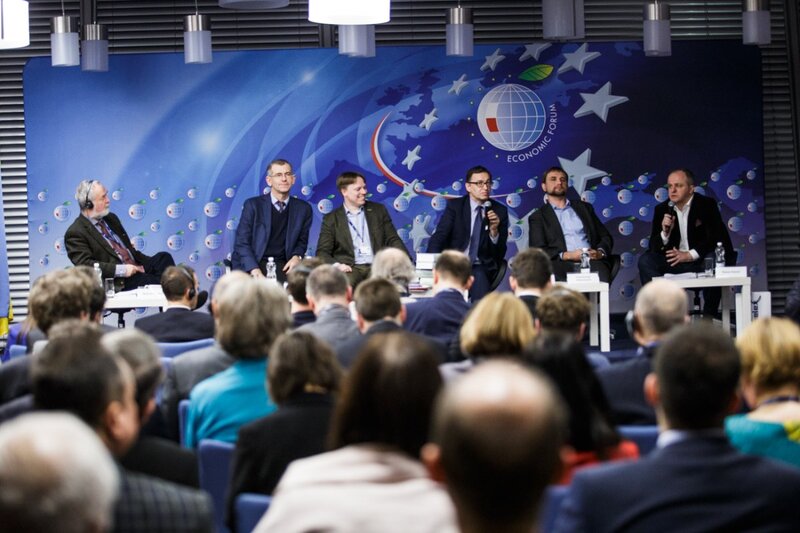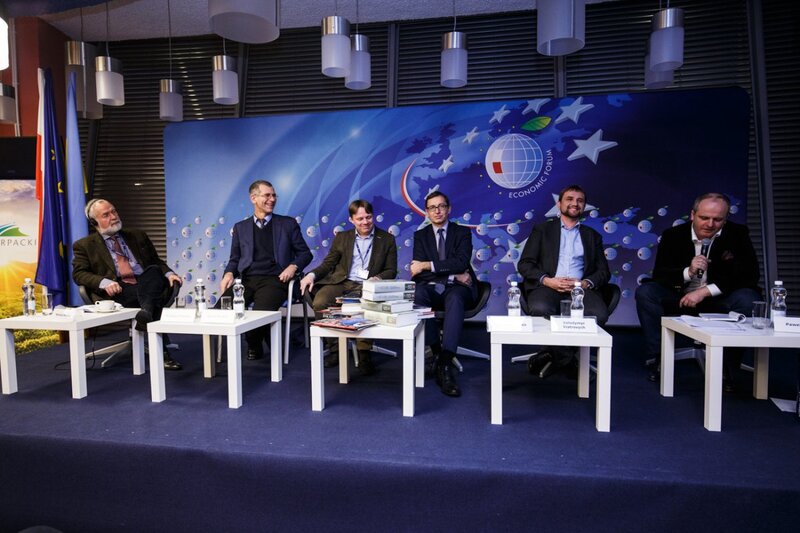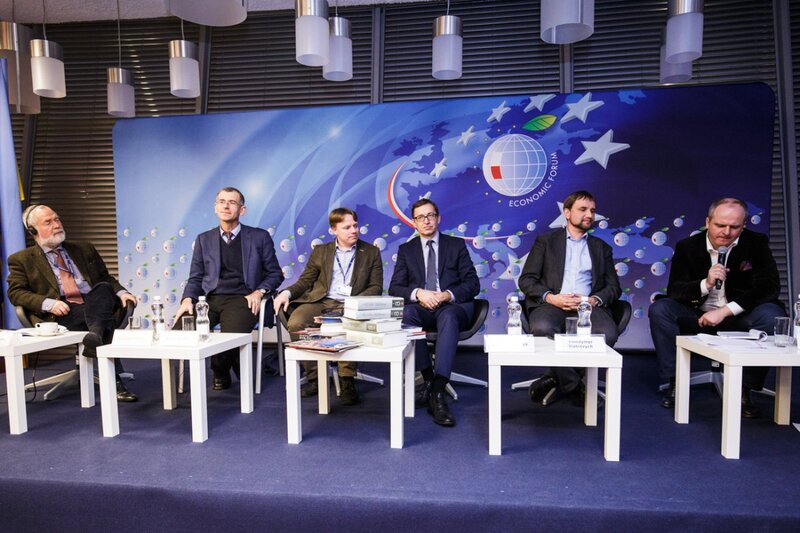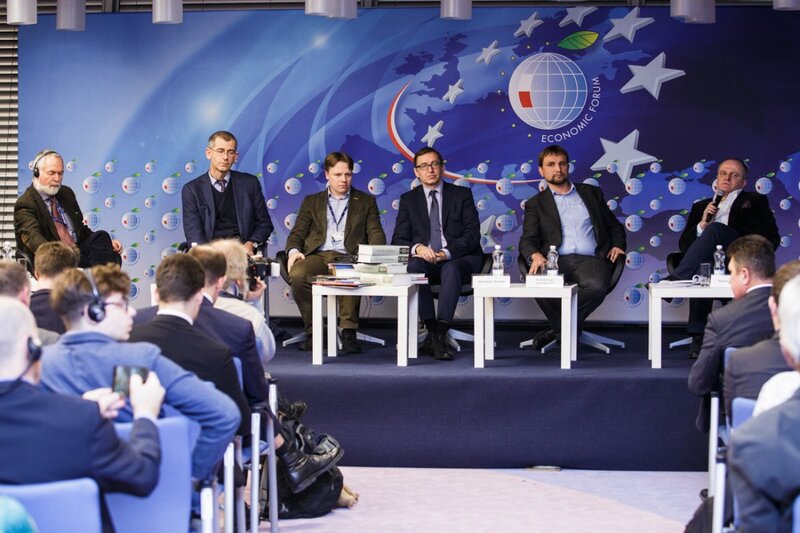During the 10th Europe – Ukraine Forum, which was held on 27-28 January 2017 in Jasionka, near Rzeszów, the participants discussed the processes of decommunization in Poland and Ukraine, which exhibit themselves, among others, in the elimination of monuments glorifying the dictatorship, the changes in the names of towns and streets, as well as the condemnation and debarment of people associated with the communist system from holding public functions. The President of the IPN, Dr. Jaroslaw Szarek said that it is necessary to convince people that communism was bad. He stressed that the criminal nature of this system should be more visible in the West.
The Europe-Ukraine Forum is one of the most significant conferences which have been organised by the Institute for Eastern Studies as a part of the agenda of the Economic Forum in the past years. Previous editions of the event took place in Wrocław, Kijów, Budapeszt and Łódź. The Forum is a perfect meeting place for representatives of political world, business, local governments, international organisations and think tanks from most of the European Union countries, Ukraine and other countries.
The motto of the 10th Europe – Ukraine Forum was: "Opportunities Not To Be Missed". The Institute of National Remembrance was a partner of two panel discussions: "Decommunization and lustration in Ukraine. Can Ukraine benefit from the experience of Poland and other post-communist countries?" and "Public diplomacy and historical policy. How to overcome the legacy of old conflicts? ."
- Communism lasted for three generations, and left behind an elite. Was there a possibility of exchanging this elite? In Poland, after the experience of "Solidarity", which had the potential of emerging an elite capable of seizing power, we also had the emigration. However, we encountered a powerful resistance against the settlement of the time of the Polish People's Republic. I remember when the elections in the 90s were won under the slogan "choose the future" - the Head of the Institute of National Remembrance explained, referring to the complicated process of breaking with the totalitarian legacy in countries which experienced communism.
In his opinion the most important task is to change the social awareness, "so that people understand that communism was evil, and knowledge is the best weapon to use in order to reach that goal." According to Dr. Szarek, the best way to conduct historical education in this field is exposing the criminal methods of operation of the communist apparatus, which concerns both Poland and Ukraine. The President of the IPN indicated that the cooperation between institutions of both countries has been going well, despite the differences in terms of "political matters or perception of history." The President of the Institute said that there is still the problem of de-Sovietization in Ukraine which Poles have already managed to overcome ."
Referring to the issue of settlements with the past, Dr. Volodymyr Viatrovych, Head of the Ukrainian Institute of National Remembrance reminded the participants that decommunization in his country was possible only after the Euromaidan Revolution. - We lost 25 years – he pointed out, stressing the existance of laws prohibiting, among others, communist symbols and names in Ukraine.
The discussion was attended by Polish and Ukrainian Presidents of Institutes of National Remembrance as well as by Andriy Kohut, Head of the State Archive of Security Service of Ukraine, Marcus Meckel, Chairman of the Council of the Foundation for Polish-German Cooperation, Prof. Grzegorz Motyka, Director of the Institute of Political Studies of the Polish Academy of Sciences, Prof. Carlos Flores Juberias from the University of Valencia and Meelis Saueauk, Senior Researcher from the Estonian Institute of Historical Memory.
We demand that the experience of the inhabitants of Eastern Europe and the nations of the former Soviet Union and the criminal nature communism are recognised in the West, and we will do everything we can to make this happen - said the President of the IPN.
During the panel discussion on "Public diplomacy and historical policy. How to overcome the legacy of old conflicts? " scientists from Poland, Russia, Czech Republic and Ukraine, including the President of the Council of the IPN, Prof. Jan Draus, talked about collective memory shaping national and European identity and the significance of historical policy.
